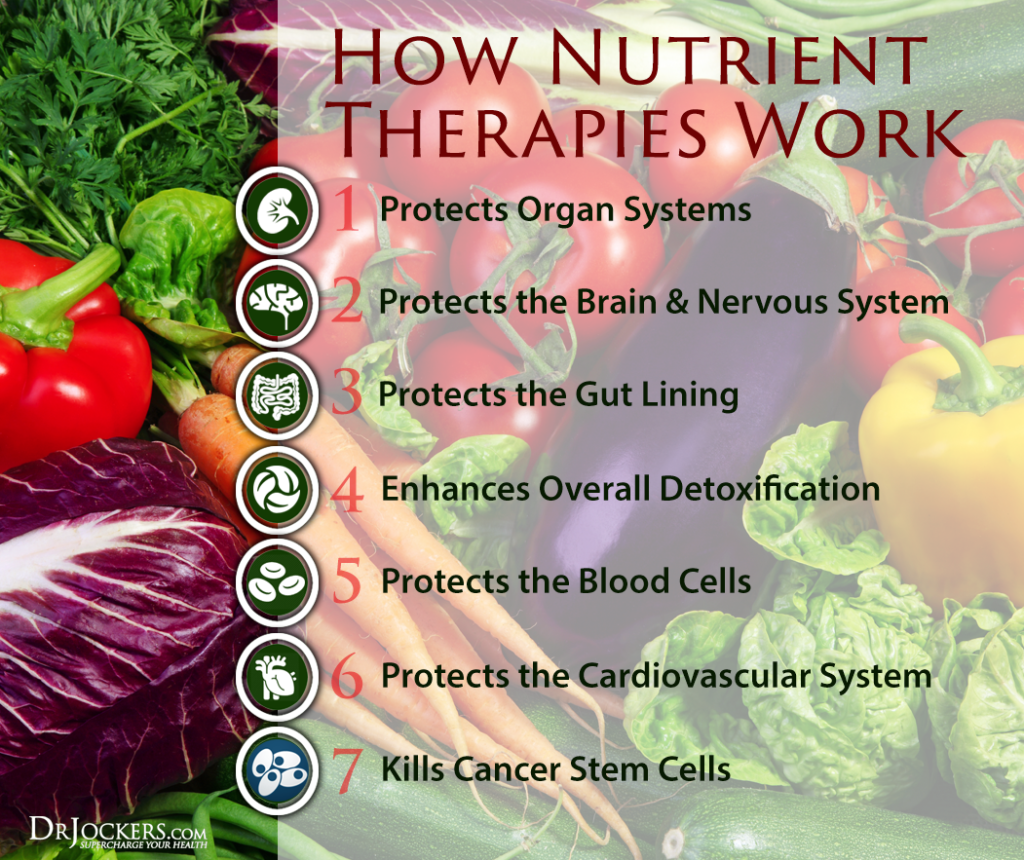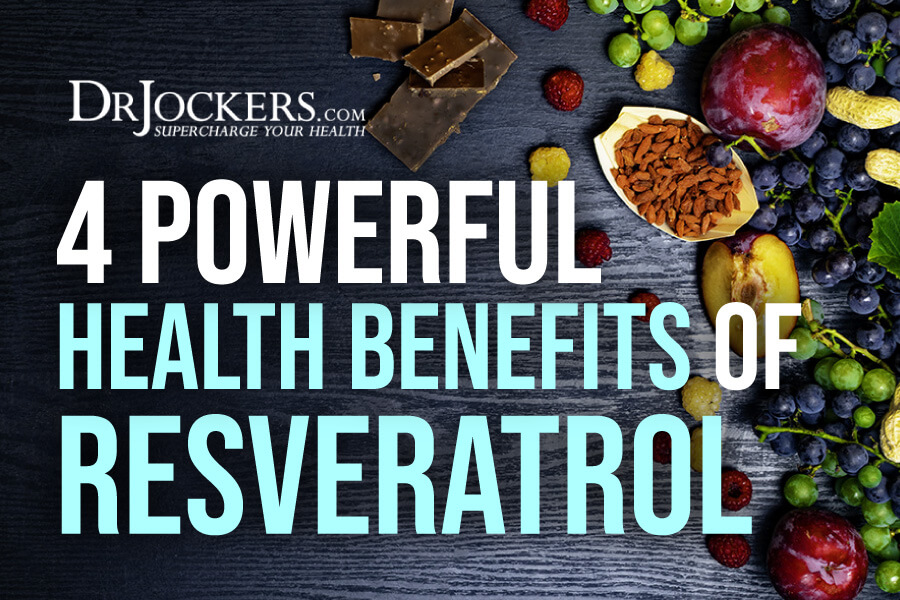 4 Powerful Health Benefits of Resveratrol
4 Powerful Health Benefits of Resveratrol
Scientists have been astonished by the remarkable health benefits associated with resveratrol. This unique nutrient found in grape skins has a powerful effect on the genetic expression of the mitochondria within every cell. By positively effecting mitochondrial function, resveratrol, has been shown to help in the prevention of cancer, heart disease and other metabolic conditions (1). In this article, you will discover 4 powerful health benefits of resveratrol.
Researchers have been intrigued for years about what has been traditionally called the French paradox. This refers to how many of these native French are able to smoke cigarettes and drink lots of alcohol and still maintain good health. They have looked at the dark, fermented wines these individuals drink on a regular basis.
They have found the active compound in red wine, called resveratrol, has extraordinary health benefits. Resveratrol is a unique polyphenolic anti-oxidant found in the grape skins and seeds and some berries. It plays a critical role in the plant’s natural defense system against injury, infection and disease (2).
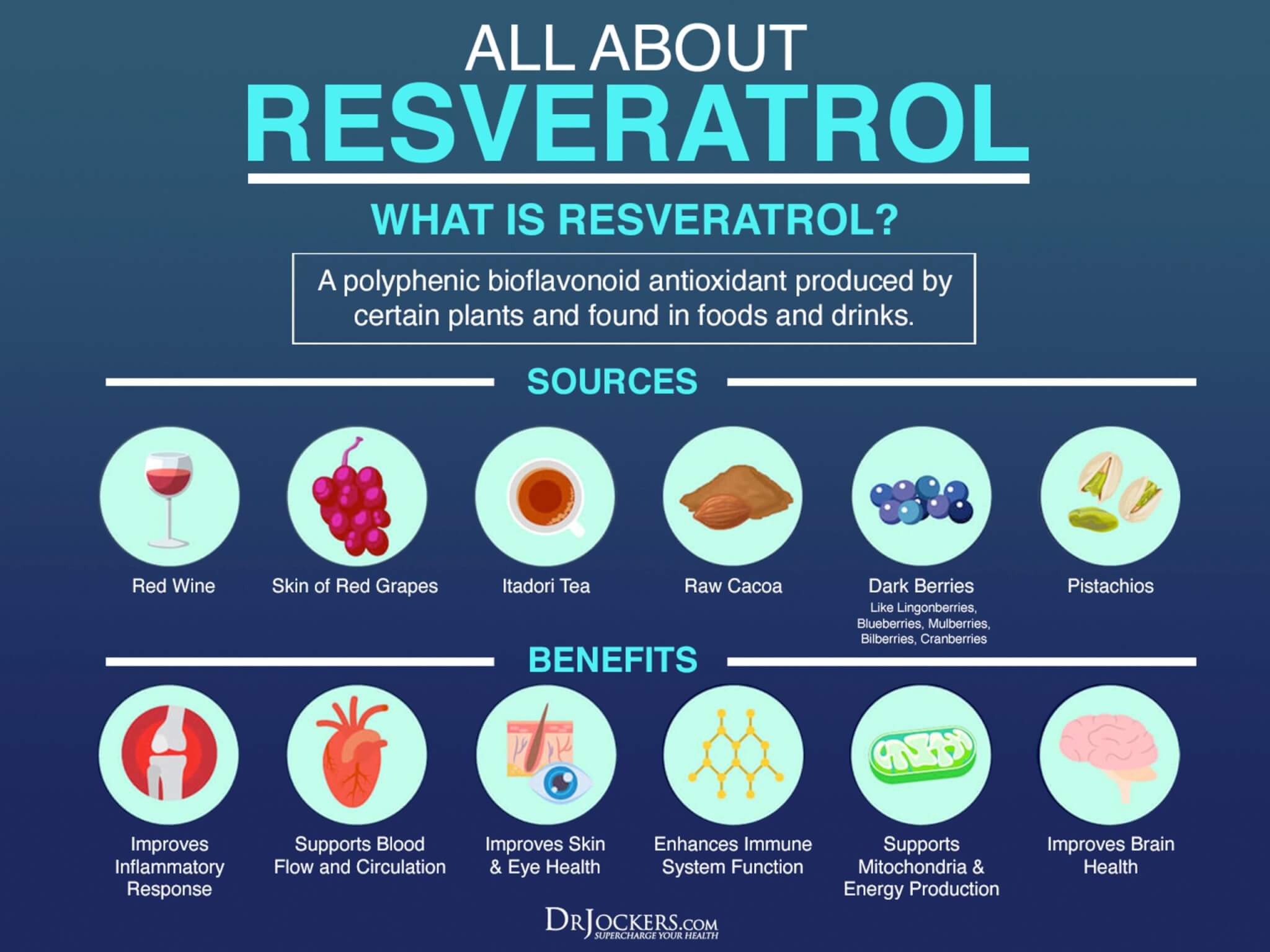
Resveratrol and Gene Expression:
Resveratrol has been shown to have an incredible influence on gene expression that has profound anti-aging effects (3). This mimics the positive benefits of caloric restriction and extends lifespan. Most people are intimidated by extreme caloric restriction and would prefer to get the same anti-aging benefits from an antioxidant rich diet and supplements such as resveratrol.
A Harvard study in 2003 found that resveratrol boosted the life span of yeast cells by as much as 70% (4). They then carried the testing out with similar results in roundworms and fruit flies. This made resveratrol the first compound to have anti-aging benefits in a widely divergent species. Italian scientists in 2006 showed that resveratrol could extend life by more than 50% in more advanced species of fish (5).
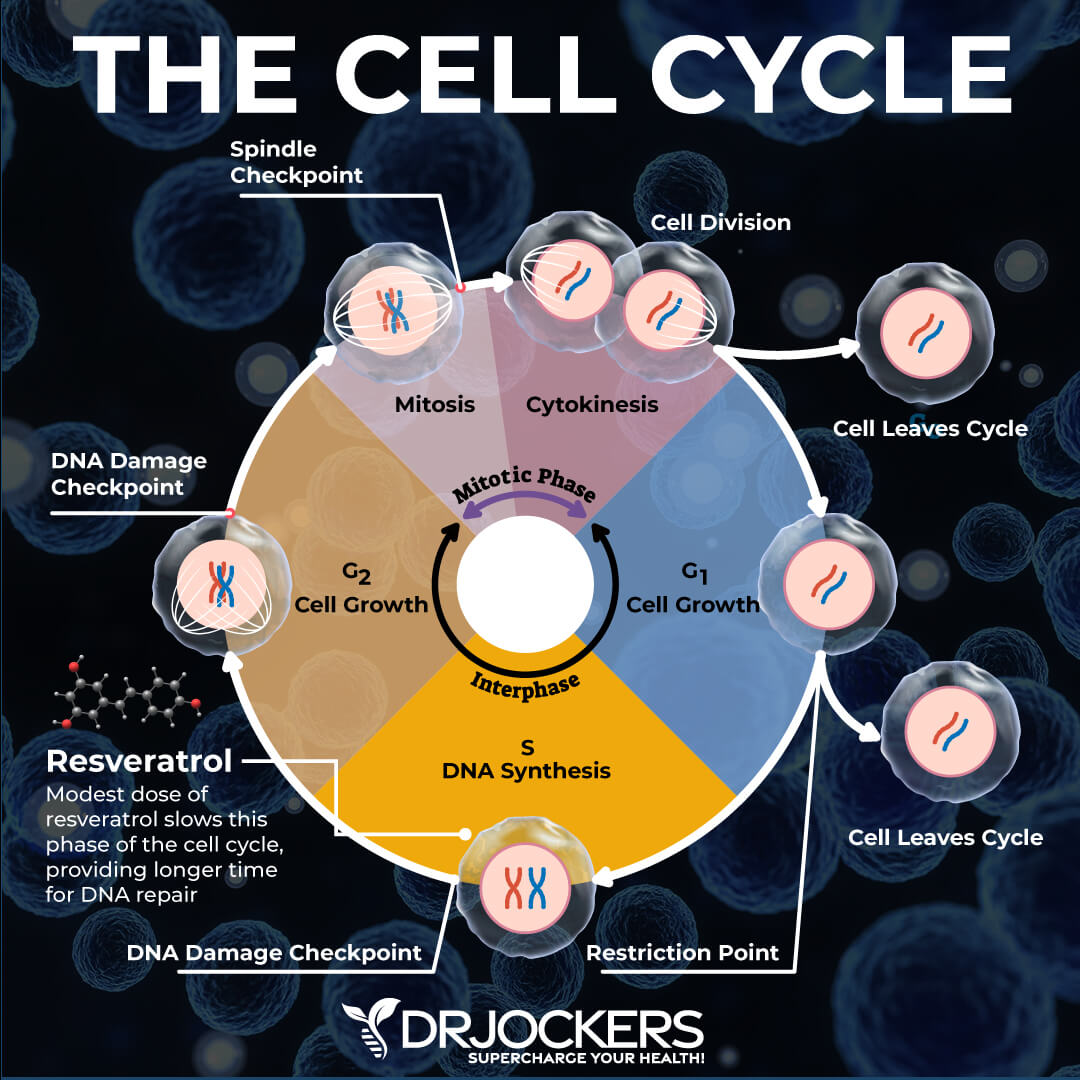
Resveratrol and Mitochondrial Health:
Resveratrol has been shown to activate a group of mitochondrial proteins in the sirtuin family and in particular (SIRT1) (6). Several studies have shown that this sirtuin activation results in an increased level of mitochrondria in the body. This plays a big role in energy production, fat and sugar metabolism and blood sugar stability. With improved blood sugar the body is better able to regulate insulin and other hormones which reduces inflammation and improves fat burning.
The mitochondria of the cell control the metabolic function of the cell and ultimately the body. Resveratrol’s ability to reduce inflammatory stress on the mitochondria and upregulate mitochondrial numbers has an enormous impact on whole body health. Healthy restored mitochondria are significantly more efficient and produce less free radicals than older mitochondria.
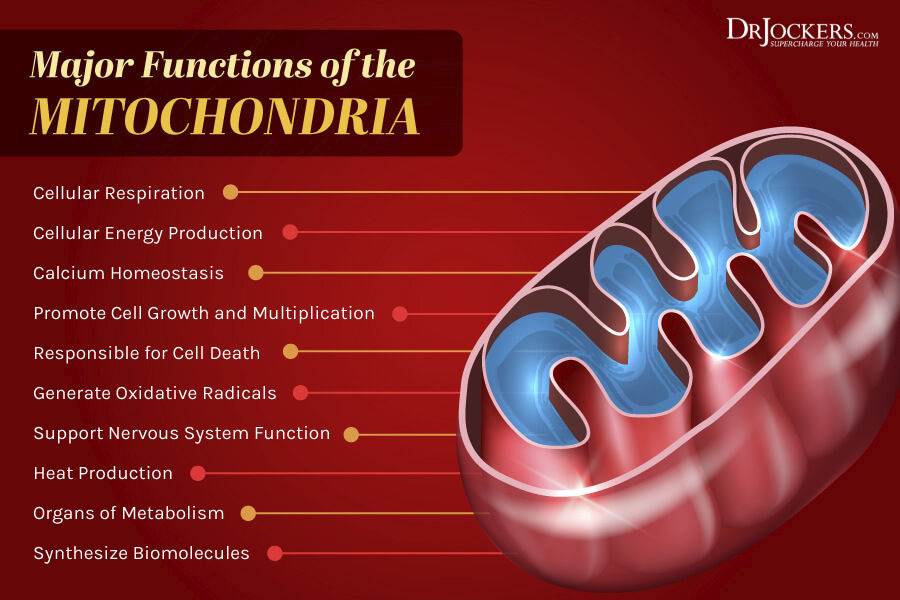
Resveratrol and the Nitric Oxide Cycle
Resveratrol has a strong ability at optimizing the health of the nitric oxide cycle. Nitric oxide is a chemical signaling molecule that is involved in the nervous, immune and vascular systems. There are three main forms of nitric oxide which include endothelial nitric oxide (eNOS), inducible nitric oxide (iNOS) and neuronal nitric oxide (nNOS).
Healthy brain and cardiovascular function depends upon a greater eNOS and nNOS activity and suppressed iNOS activity. This pattern allows for healthy blood flow in the brain and coronary arteries and blood vessels throughout the body.
Chronic inflammatory stress lowers eNOS and nNOS activity and increases iNOS activity. This pattern is a major risk factor for hypertenstion, cardiovascular disease and neurodegenerative states.
Resveratrol has been shown to strongly improve this nitric oxide cycle which enhances endothelial activity to enhance blood flow dynamics to important regions of the body such as the coronary arteries and brain (7, 8). This strongly reduces the risk of heart disease and neurodegenerative states like Alzheimer’s and Parkinson’s.
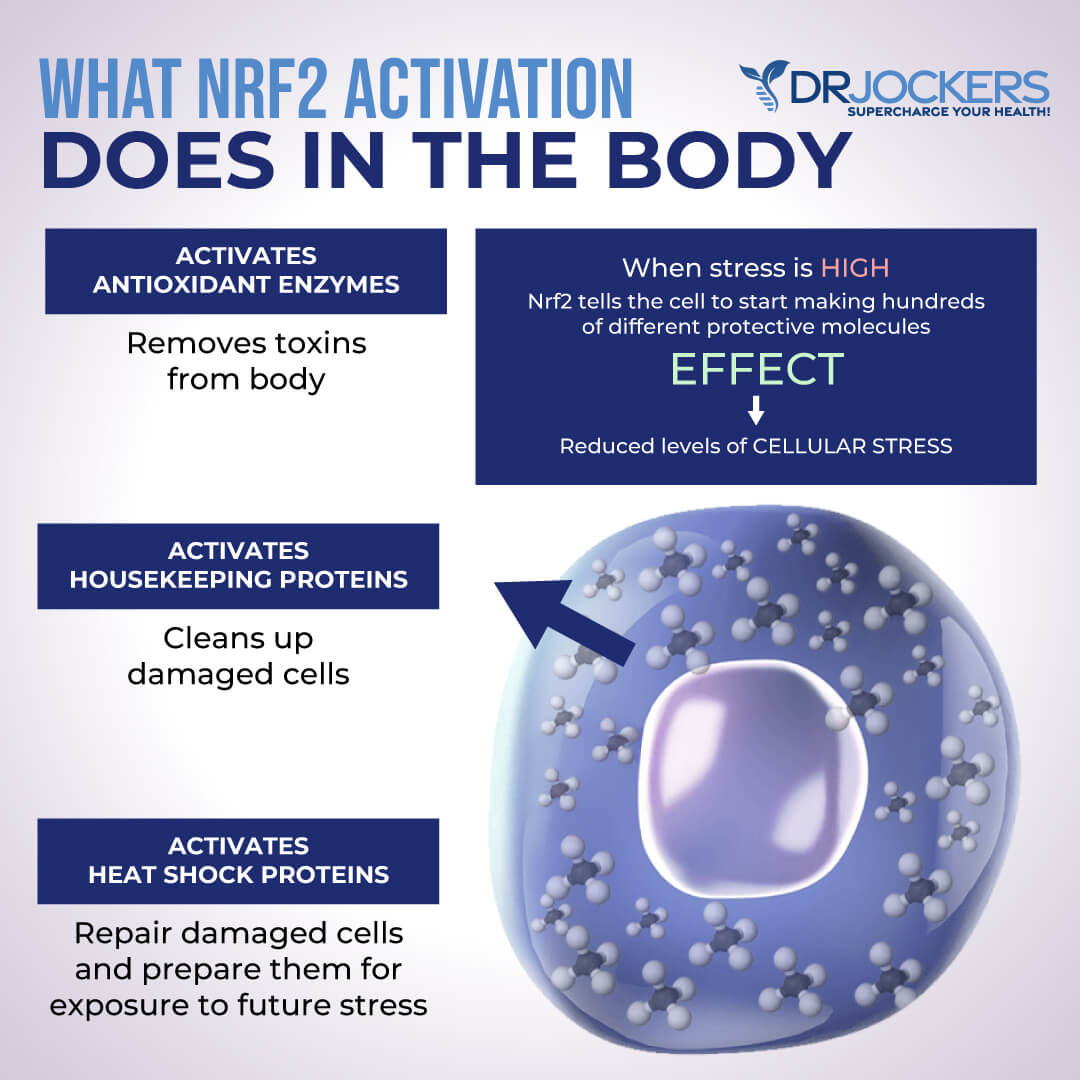
Resveratrol and Cancer:
Resveratrol has a profound effect at inhibiting the master inflammatory compound Nuclear factor Kappa Beta (NF-KB) (9). NF-KB initiates inflammatory processes that are implicated in cancer cell formation. Resveratrol also makes cancer cells more vulnerable to our bodies natural immune cell induced attacks. Scientists are looking very closely at resveratrol as an adjunct therapy for increasing the effectiveness of traditional chemotherapy on destroying cancerous growths.
Cancer cells are known to have dysfunctional mitochondrial function. This is evidenced in the inability for cancer cells to derive energy from oxidative phosphorylation. These cells rely completely on anaerobic glycolysis for energy production. Addressing the mitochondria which drives the energy production of the cell is key to terminating abnormal tissue growths
Part of the process of breast cancer is a dysregulation of the Heregulin-Beta1 (HRG-beta 1) cell signaling pathway. This pathway activates the Matrix metalloproteinase (MMP) 9 enzyme which leads to invasive tumor growth. Resveratrol has also been able to shown to down regulate this pathway and slow the growth of breast cancer.
Many other studies have indicated resveratrol’s effectiveness in shutting down growth in pancreatic, liver, colon, prostatic, skin and many other cancer cell types (10, 11). Most scientists relate this back to the ability of resveratrol to effect mitochondrial function through the sirtuin proteins that regulate proper function.
Proper Dosages:
Supplements should be in the range of 20-100 mg to achieve the same benefits observed in most of these studies on degenerative disease states. The dosage of 20mg daily is appropriate for healthy adults without any significant health history to obtain the beneficial anti-aging gene expression that resveratrol provides. Individuals with advanced cancer should look at getting dosages in the 100-200 mg range.
An ounce of red wine averages around 90 micrograms of resveratrol. This is the 220 times less than the minimal dosage (20 mg) of resveratrol supplementation. A glass of wine is approximately five and a third ounces. At this scale it would take 41 glasses of red wine to achieve the minimal supplemental dosage of resveratrol used in these studies.
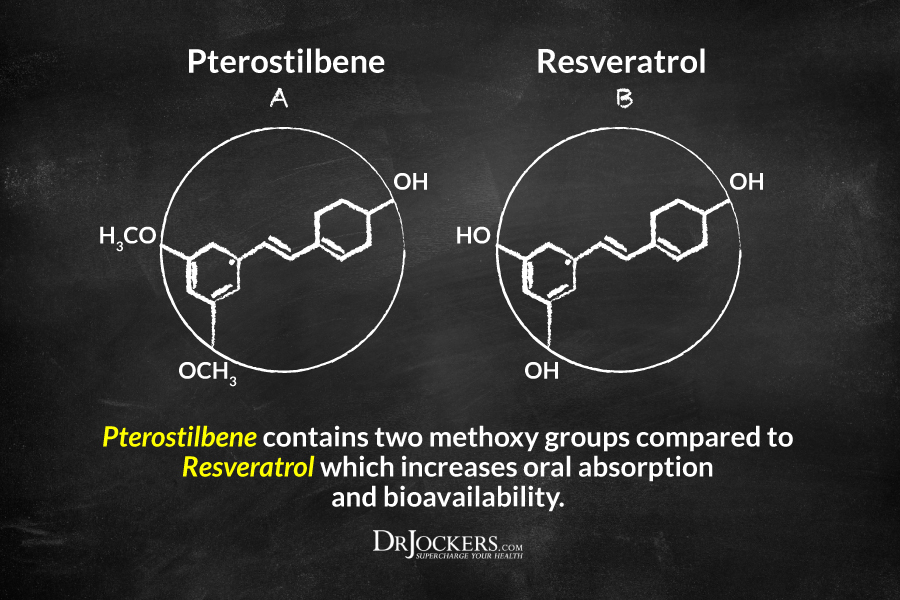
Pterostilbene – Resveratrol:
This is a naturally occurring phenolic compound/analog of resveratrol that has comparatively better oral bioavailability, has been shown to possess cytotoxic, cytokine-inhibiting, and antioxidant properties (12). This compound has also been shown to slow the process of aging by reducing telomerase activity (13).
We have included 100 mg of Pterostilbene in our Nrf2 Power. This supplement also contains bioactive curcumin, sulfuraphane and ECGC from green tea extract. This is a potent anti-inflammatory and anti-aging supplement.
